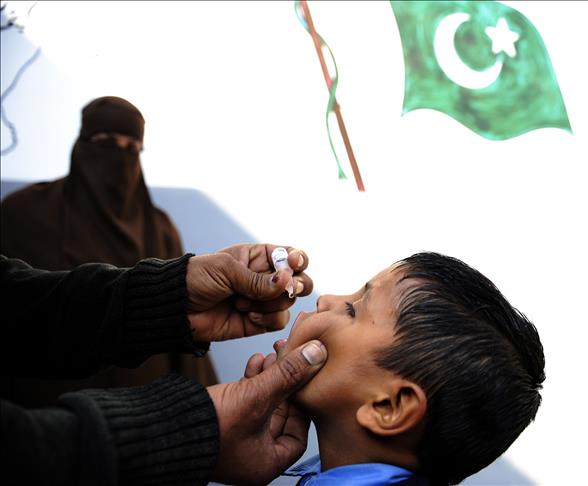
Pakistan's attempts to tackle its endemic polio problem have led to the army being assigned with the task of assisting in vaccinations, officials said Thursday.
Prime Minister Nawaz Sharif directed the army to assist civilian authorities, especially by providing security, at a National Security Committee meeting in Islamabad. It was followed with a strategy meeting at army headquarters in garrison city Rawalpindi, according to a press release issued by the Inter Services Public Relations (ISPR).
“It is pertinent to mention that Pakistan may face international travelling ban due to highest number of polio cases worldwide and is one of three countries where polio is still categorized as an endemic viral infection,” the statement said.
The army will focus particularly on the northwestern Khyber Pakhtunkhawa (KP) province and in Karachi where several anti-polio workers have been killed in the last five years, forcing many health workers to quit their jobs out of fear.
Pakistan is one of three countries where polio is still endemic, Nigeria and Afghanistan being the others.
Some 189 polio cases were reported in Pakistan in 2013, of which half were reported from Khyber Pakhtunkhawa and the northern tribal belt. A total of 47 polio cases have been reported in 2014 so far from different parts of the country.
Neighboring India has already made anti-polio vaccination mandatory for all Pakistani travellers.
Pro-Taliban groups have imposed a de facto ban on anti-polio vaccinations following a fake CIA campaign to track down slain Al Qaeda chief Osama bin Laden in 2011. Social taboos, including a myth that vaccination is aimed at sterilizing Muslim children, has also been a barrier to eradicating polio in the northern tribal belt.
Authorities fear these hindrances may affect over 163,000 children below the age of 5 years in the region.
Lifting the ban, which Pakistan’s top religious scholars have declared un-Islamic, is one of the issues being negotiated in ongoing peace talks with the Taliban.
By Aamir Latif


